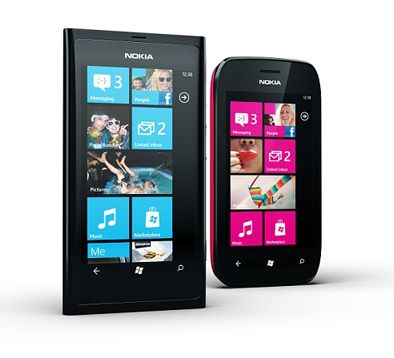Nokia Shipments Plummet But WP8 Offers Hope, IDC Says

IDC’s smartphone shipment figures show a 40 percent decline for Nokia, which is still losing the point-of-sale battle in shops
The latest smartphone shipment figures from IDC reveal that sales of Samsung and Apple devices are skyrocketing. However sales for Nokia fell off a cliff, with a nearly 40 percent drop.
Yet IDC analyst Ramon Llamas believes there is a way for Nokia and its mobile operating system partner Microsoft to get back in the race.
Industry Leaders
According to IDC’s Worldwide Quarterly Mobile Phone Tracker, Samsung shipments shot up by 173 percent in the second quarter to 50.2 million units, from 18.4 million units in the second quarter of 2011, while Samsung’s market share nearly doubled to 32.6 percent from 17 percent in the year ago quarter.
IDC attributes Samsung’s success to demand for the Samsung Galaxy S line, the latest of which, the Galaxy S III, was introduced during the quarter. Meanwhile, shipments of Apple’s iPhones rose by 27.5 percent to 26 million units but its share actually slipped to 16.9 percent from 18.8 percent in the year ago quarter.
Llamas, senior research analyst on the IDC ‘s Mobile Phone Technology and Trends Team, says iPhone shipments also fell sequentially in the second quarter from 35 million in the first, which he attributed to iPhone fans waiting on the sidelines for the iPhone 5, or whatever Apple chooses to call the next model of its iconic smartphone that’s expected to be released in the fall.
IDC tracks shipments, which refer to the number of smartphones sent to retailers by manufacturers, which is not the same as sales to customers, but it’s still a pretty accurate measure of market activity.
Nokia Pain
Nokia, which has bet the company on Microsoft’s Windows Phone mobile operating system, is going through a rough period of transition. Its shipments fell by 38.9 percent in the second quarter to 10.2 million units, from 16.7 million in the first quarter of 2011, while its market share plummeted to 6.6 percent from 15.4 percent a year earlier. Nokia had long held the number one spot in the global market for all mobile phones, including smartphones. IDC attributes the drop to the discontinuation of Nokia’s Symbian OS and the company’s transition to Windows Phone.
 While Nokia has its work cut out for it, sales of its Lumia line of smartphones running Windows Phone 7 (WP7) were impressive, said Llamas. “Nokia is going to clearly be the leader [in Windows Phone] with 4 million units shipped,” he said. HTC and Samsung also sell WP7 devices, but in smaller volumes.
While Nokia has its work cut out for it, sales of its Lumia line of smartphones running Windows Phone 7 (WP7) were impressive, said Llamas. “Nokia is going to clearly be the leader [in Windows Phone] with 4 million units shipped,” he said. HTC and Samsung also sell WP7 devices, but in smaller volumes.
Windows Phone 7 is a well-designed mobile OS and is expected to get better with its successor, Windows Phone 8, due out this Autumn, Llamas said. “But they have to win at the critical point of sale [in the store] and they are not winning it.”
When someone walks into an AT&T or T-Mobile store in the US today, there are Nokia smartphones on display, but they are sharing shelf space with Samsung Android phones and Apple iPhones, which together comprise more than three-fourths of the smartphone market, according to the latest IDC numbers. Android and iOS phones are much easier sales to make because they are inherently popular and well known to consumers and to the carrier sales people, he said. Llamas believes that sales reps are more inclined to sell an Android or Apple phone because it’s “low-hanging fruit.”
“They would rather do that than spend 30 minutes trying to educate the customer on a Windows phone and not get the sale when the iPhone literally sells itself,” he said.
Sales Incentives
Llamas thinks Nokia should improve training for carrier store reps to better educate them on the Nokia Windows Phone products and get them as “excited” about selling Nokia models as they are about selling Samsung or Apple products. He’s also encouraged by news reports that Nokia is considering paying incentives to carriers in Europe to be exclusive resellers of Nokia smartphones running Windows Phone 8 (WP8).
Llamas thought it was unfair of some tech pundits to bash Microsoft for announcing, as it did at its Windows Phone Summit in San Francisco in June, that owners of WP7 devices will not be able to upgrade their devices to run WP8 because the underlying hardware will be fundamentally different. But there have been instances in which new features in both Google Android and Apple iOS upgrades were not backwards compatible with devices running previous versions of their OSes.
“The fact of the matter is that people started crying foul to Windows, but this is how technology goes forward,” he said.
How much do you know about smartphones? Take our quiz!